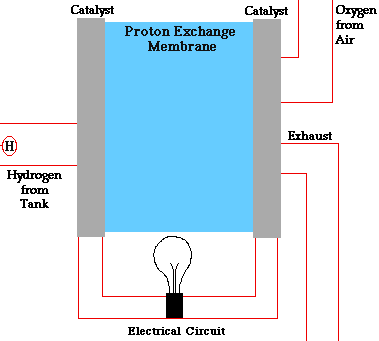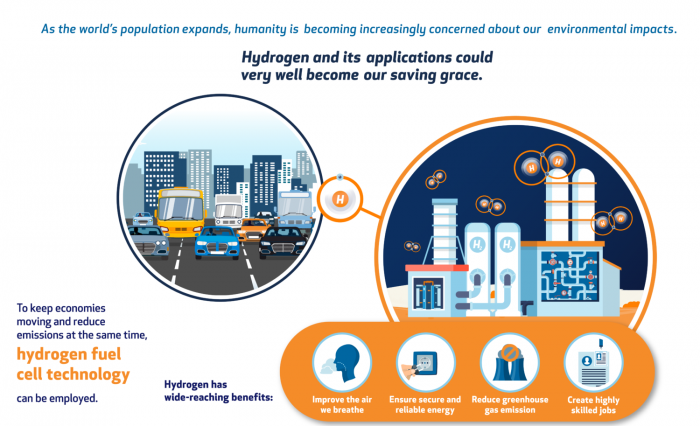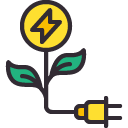Fuel Cell
A fuel cell is a device that generates electricity by a chemical reaction. Every fuel cell has two electrodes called, respectively, the anode and cathode. The reactions that produce electricity take place at the electrodes

Fuel Cell
A Frontier Technology
A fuel cell uses the chemical energy of hydrogen or another fuel to cleanly and efficiently produce electricity. If hydrogen is the fuel, electricity, water, and heat are the only products. Fuel cells are unique in terms of the variety of their potential applications; they can provide power for systems as large as a utility power station and as small as a laptop computer.
Benefits of Fuel Cell
- High Efficiency- when utilizing co-generation, fuel cells can attain over 80% energy efficiency
- Good reliability- quality of power provided does not degrade over time.
- Noise- offers a much more silent and smooth alternative to conventional energy production.
- Environmentally beneficial- greatly reduces CO2 and harmful pollutant emissions.
- Size reduction- fuel cells are significantly lighter and more compact





